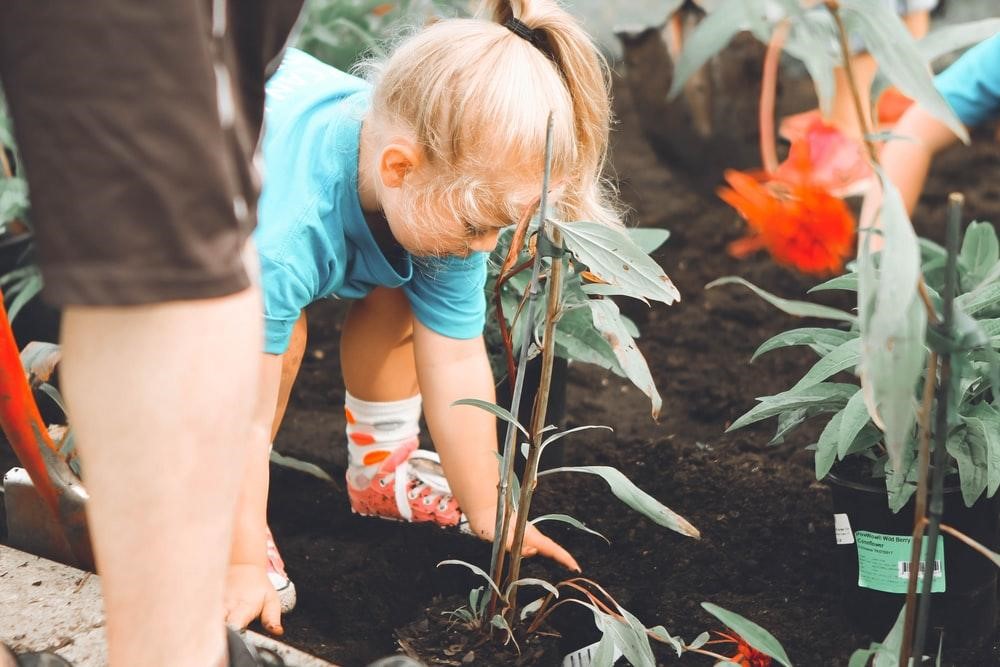Contents
No matter how long you’ve been a believer, you can teach your children tremendous spiritual lessons. We all have a spiritual dimension. Even so, we don’t have to be spiritual gurus to teach our kids valuable spiritual lessons.
Whatever your beliefs, you probable want your child to know that life is a gift, that their choices matter, that their presence in the world contributes to joy and goodness, that nature deserves a certain admiration, that there’s always a solution to our problems ( not always as we expect), that true happines comes from sharing and connecting with others, that being uncomfortable can help us grow, and that we don’t always get what we want, we choose to make the most of what we get.
Learn to Trust
Even if your spirituality does not include a Supreme Being, kids need to feel that that universe smiles on them. Even Einstein affirmed that the most crucial decision each person makes is deciding whether or not this is a friendly universe.
So it makes sense that as long as you feel safe in the world, you’re more emotional and physically healthy and more eager to reach out to others, which increases happiness (and helpfulness). Obviously, you need to teach your children how to keep themselves safe, but knowing that some people are not to be trusted should not hinder them from trusting people in general.
One effect of this is that kids should not be exposed to TV news, which has been shown to make those following them feel less safe and more likely to overestimate the chance of threatening situations. Einstein was also promoting a deeper level of trust, a sense that life has meaning and that the good we do in the world is imperative.
Practice Gratitude
Gratitude is the healthiest of human emotions. As parents, caregivers, teachers, and other professionals who work with children, it is critical to teach the little ones the meaning of gratitude from an early age. Children who are raised knowing how to feel and evoke a sense of gratitude grow up to be well-rounded adults with a higher level of mindfulness, interpersonal skills, and efficacy. In fact, there are plenty of scientifically proven benefits of practicing gratitude that serve as great motivation to inspire gratitude in your children.
According to a 2012 study, grateful individuals are more likely to engage prosocially, even when they face negative feedback, aggression, or unkindness. Grateful people were less likely to react against others who had wronged them, conveying more sensitivity and empathy toward them.
Gratitude has also been shown to decrease a wide range of toxic emotions, such as resentment, envy, prolonged anger, regret, and relentless sadness. Being more grateful is proven to improve a sense of well-being, increase overall happiness and positive emotions while reducing rates of depression.
Connecting Children with Nature
Time in nature isn’t just leisure time; it’s an important investment in our children’s health. IN a massively urbanized society – with the internet, computers, and extracurricular activities competing for timeless ever, children have the opportunity to enjoy playing in nature. It’s called nature-deficit disorder and describes the detrimental effects on humans as a result of this increased gap between children and nature.
Recent findings indicate that fewer children are experiencing nature directly, with a considerable number of children playing indoors more than out. The same survey indicates that many young people are “glued to the online world” and are far removed from nature, not understanding its importance or lacking knowledge of biodiversity.
Many studies support the positive connections between direct experiences in nature and children’s emotional, mental, and physical health and well-being. It has been concluded that regular access to outdoor activities or nature can:
- Improve resilience against adversity and stress, and increase self-esteem
- Improve creativity, learning, concentration, cognitive development, cooperation, self-awareness, and flexibility
- Prevent childhood obesity
Further research shows that through positive experiences in nature, kids may develop their appreciation of nature and a foundation for the development of responsible environmental behavior.
Limit Technology Noise So You Can Hear the Stillness
We’re used to backgrounding Netflix or radio as a way to avoid being alone with ourselves. While it might seem “safe” for a passing moment, the noise around us can hinder us from connecting to something greater than our conscious mind. Children, more often than not, need quiet time to simply be present with themselves. Using music as an alternative to perfect stillness might work wonders for the mood in your house, but if radio news that your child is not listening to are intruding on the peacefulness of your home, he or she has to work on blocking those voices out. And if the news is discussing otherworldly issues for your child, the tension escalates. We all need silence in our life -sometimes more than we think.
Allocate Time for Reflection
Just sitting non-disapprovingly with unresolved issues or bog questions in our hearts directs the light of conscious awareness to those challenges, which has a healing effect. Taking time to reflect usually illuminates the next question or the next step toward gently resolving a challenging situation.
Whatever teachings or traditions your child follows, all families need walks in the woods, looking up at the moon, or riding under the sun-warmed weather to sit peacefully, soaking in the life impressions. If none of these seem to work, remember that you can always be a living example for your child.
Show them compassion, kindness, and allow them to see your struggles too, apologizing when you are wrong. Overall, no matter which spiritual activities you choose to incorporate, preserving the good parts in your children will help them grow up to be emphatic, well-rounded, and caring human beings.

